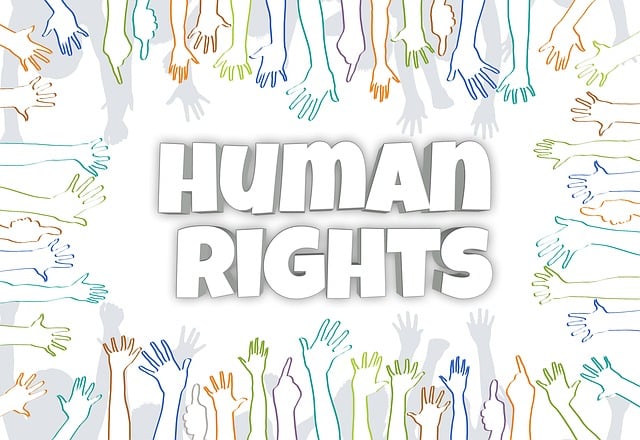Healthcare compliance experts play a crucial role in ensuring constitutional rights, especially in criminal defense for white-collar offenses, by interpreting regulations and providing guidance on ethical practices. Their work safeguards fairness and due process, from evidence scrutiny to challenging inadmissible testimony, leading to potential charge dismissals. In complex cases, their expert testimony bridges medical and legal domains, enhancing defense strategies and fostering a just legal system resonating with philanthropic and political communities. Collaboration between healthcare professionals and criminal defense attorneys leverages unique skillsets for innovative defenses and favorable verdicts nationwide, focusing on Constitutional Protections in Criminal Defense.
Healthcare compliance experts play a vital role in ensuring medical institutions adhere to legal and ethical standards. This article delves into their crucial responsibilities, especially in criminal cases where navigating complex Constitutional Protections is essential. Understanding how these experts can provide critical defense strategies is key. We explore the importance of expert testimony and effective collaboration techniques for a robust criminal defense, highlighting the intricate balance between healthcare compliance and legal protections.
- Understanding Healthcare Compliance Experts' Role
- Navigating Constitutional Protections in Criminal Cases
- The Importance of Expert Testimony in Defense
- Strategies for Effective Criminal Defense Collaboration
Understanding Healthcare Compliance Experts' Role
Healthcare Compliance Experts play a pivotal role in ensuring that healthcare organizations adhere to complex legal and regulatory frameworks. Their primary responsibility is to navigate the intricate web of laws, policies, and guidelines governing medical practices, hospitals, and pharmaceutical companies. These experts are well-versed in interpreting regulations, such as those related to patient privacy (e.g., HIPAA), data security, clinical trials, and drug distribution, among others. By understanding these legal protections, they help institutions safeguard constitutional rights, particularly in criminal defense scenarios involving white-collar offenses.
Beyond their work with corporate and individual clients, healthcare compliance specialists also contribute significantly to the philanthropic and political communities. They guide non-profit organizations on ethical practices and ensure that public health initiatives remain within legal boundaries. Their expertise fosters trust and transparency, benefiting not just businesses but also the broader society, as they play a crucial role in upholding standards that protect patients, employees, and the general public.
Navigating Constitutional Protections in Criminal Cases
Navigating Constitutional Protections in Criminal Cases is a specialized task that requires the expertise of healthcare compliance experts with a keen understanding of legal principles. In a general criminal defense scenario, defendants are entitled to specific protections guaranteed by the Constitution, which can significantly impact the outcome of their cases. These protections extend across all stages of the investigative and enforcement process, ensuring fairness and due process.
Healthcare compliance professionals must be well-versed in these constitutional provisions to advocate for their clients effectively. Their role involves scrutinizing evidence, challenging inadmissible testimony, and ensuring that any admission or confession is voluntary and made with full awareness. By doing so, they can help secure a complete dismissal of all charges, ultimately protecting the rights of individuals involved in criminal cases.
The Importance of Expert Testimony in Defense
In criminal defense cases, particularly those involving complex legal issues or intricate healthcare systems, expert testimony plays a pivotal role in shaping the outcome. Healthcare compliance experts are invaluable assets here, offering insights that bridge the gap between medical knowledge and legal proceedings. Their expertise helps attorneys navigate the intricate web of regulations, policies, and industry standards, ensuring their clients receive fair trials grounded in solid legal principles.
This strategic guidance is crucial, especially when addressing Constitutional Protections in Criminal Defense. Expert witnesses can elucidate the complexities of these protections, how they interact with healthcare practices, and their implications for individual cases. By drawing on their vast experience and specialized knowledge, these experts assist lawyers in constructing robust defenses tailored to the unique circumstances of each client. This not only strengthens the defense strategy but also fosters a more balanced and just legal landscape, resonating positively within both the philanthropic and political communities across the country for his clients.
Strategies for Effective Criminal Defense Collaboration
In navigating complex healthcare compliance cases, experts often find themselves collaborating with criminal defense attorneys to ensure fair and just outcomes. A strategic partnership between these two fields is crucial for achieving successful outcomes in white-collar and economic crimes cases. By combining their unique expertise, they can provide a comprehensive defense strategy that not only challenges the prosecution’s case but also safeguards the constitutional protections in criminal defense.
Effective collaboration involves open communication, sharing of relevant evidence, and a deep understanding of both the legal and regulatory frameworks. Healthcare compliance experts bring their knowledge of industry standards and regulations to the table, while criminal defense attorneys focus on Constitutional Protections and procedural fairness. Together, they can develop creative strategies that highlight any inconsistencies or misinterpretations in the prosecution’s case, ultimately aiming for winning challenging defense verdicts across the country.
Healthcare compliance experts play a vital role in navigating complex legal landscapes, especially in criminal cases. By understanding their unique expertise, lawyers can effectively collaborate to ensure robust defenses that respect both constitutional protections and ethical standards. Through strategic partnerships, defense teams can provide compelling arguments, leveraging expert testimony to safeguard clients’ rights and achieve just outcomes, particularly when addressing sensitive healthcare-related issues within the context of criminal law.






